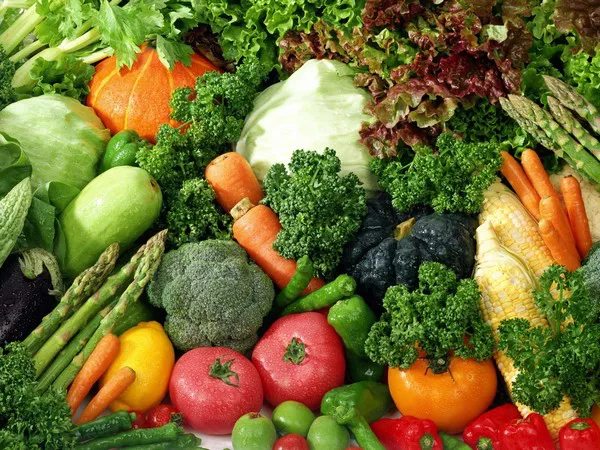Antioxidants are essential compounds that play a crucial role in protecting our cells from oxidative stress and damage caused by free radicals. Free radicals are unstable molecules that can cause harm to our cells, leading to various health issues and accelerating the aging process. To combat these harmful effects, our bodies rely on antioxidant systems, which include enzymes and molecules that neutralize free radicals and help maintain cellular health. Several vitamins act as powerful supporters of these antioxidant systems, enhancing their effectiveness in safeguarding our overall well-being. In this article, we will explore the key vitamins that support antioxidant systems and the vital role they play in promoting cellular health.
Understanding Antioxidant Systems:
Antioxidant systems are a complex network of molecules and enzymes that work together to neutralize free radicals and prevent oxidative damage. Free radicals are highly reactive molecules with unpaired electrons, and when left unchecked, they can cause cellular damage, leading to various health issues, including inflammation, premature aging, and chronic diseases.
Antioxidant systems help maintain a balance between free radicals and antioxidants in the body, ensuring that the harmful effects of free radicals are minimized. These systems include enzymatic antioxidants, such as superoxide dismutase (SOD), catalase, and glutathione peroxidase, as well as non-enzymatic antioxidants like vitamins C and E, beta-carotene, and selenium.
6 Vitamins that Support Antioxidant Systems
1. Vitamin C:
Vitamin C, also known as ascorbic acid, is a potent water-soluble antioxidant that plays a crucial role in neutralizing free radicals and supporting overall immune health. It is highly effective in scavenging reactive oxygen species (ROS) and protecting lipids, proteins, and DNA from oxidative damage. Additionally, vitamin C regenerates other antioxidants, such as vitamin E, to further enhance their effectiveness.
Foods rich in vitamin C include citrus fruits, berries, bell peppers, broccoli, and kiwi. Regular intake of vitamin C-rich foods or supplements can help bolster antioxidant defenses and promote cellular health.
2. Vitamin E:
Vitamin E is a fat-soluble antioxidant that works primarily within cell membranes to protect them from oxidative damage caused by free radicals. It is especially effective at neutralizing lipid peroxyl radicals, which can initiate a chain reaction of cellular damage.
The main dietary sources of vitamin E are vegetable oils, nuts, seeds, and leafy greens. Incorporating these foods into your diet can provide a steady supply of vitamin E to support antioxidant systems and protect cell membranes from oxidative stress.
3. Beta-Carotene:
Beta-carotene is a carotenoid pigment and a precursor of vitamin A. As an antioxidant, beta-carotene helps neutralize free radicals, particularly those generated by ultraviolet (UV) radiation from the sun. By quenching these free radicals, beta-carotene supports skin health and protects against UV-induced damage.
Brightly colored fruits and vegetables, such as carrots, sweet potatoes, spinach, and cantaloupe, are excellent sources of beta-carotene. Including these foods in your diet can contribute to a robust antioxidant defense system.
4. Selenium:
Selenium is an essential trace mineral that acts as a component of various antioxidant enzymes, such as glutathione peroxidase. These enzymes play a crucial role in neutralizing hydrogen peroxide and lipid hydroperoxides, protecting cells from oxidative damage.
Selenium is found in foods like Brazil nuts, fish, poultry, and whole grains. Ensuring adequate selenium intake through diet or supplementation can support the proper functioning of antioxidant systems in the body.
5. Vitamin A:
Vitamin A is a fat-soluble vitamin that acts as an antioxidant, protecting cells from oxidative stress and supporting immune function. It is essential for maintaining healthy vision, skin, and mucous membranes.
Vitamin A can be obtained from both animal sources, such as liver, fish, and dairy products, as well as plant sources, like sweet potatoes, carrots, and spinach. Including these foods in your diet ensures a sufficient intake of vitamin A to support antioxidant systems.
6. Glutathione:
Glutathione is a powerful antioxidant that is naturally present in our cells. It is often referred to as the body’s master antioxidant, as it plays a central role in neutralizing free radicals, detoxifying harmful substances, and regenerating other antioxidants like vitamin C and vitamin E.
Certain foods, such as avocados, asparagus, and spinach, contain precursors to glutathione and can help support the body’s own production of this critical antioxidant. Additionally, some dietary supplements contain glutathione, but its effectiveness when taken orally is a subject of debate among researchers.
Conclusion:
Antioxidants play a vital role in protecting our cells from oxidative damage caused by free radicals. Vitamins such as vitamin C, vitamin E, beta-carotene, selenium, vitamin A, and glutathione support antioxidant systems by neutralizing free radicals and promoting cellular health. Incorporating a variety of antioxidant-rich foods into your diet or considering supplements can help bolster these defense systems and contribute to overall well-being. As with any dietary changes or supplementation, it is essential to consult with a healthcare professional to ensure that your specific needs and health conditions are addressed in the most appropriate and effective manner. By harnessing the power of antioxidants through these essential vitamins, we can promote cellular health and support our bodies in maintaining optimal function and vitality.


